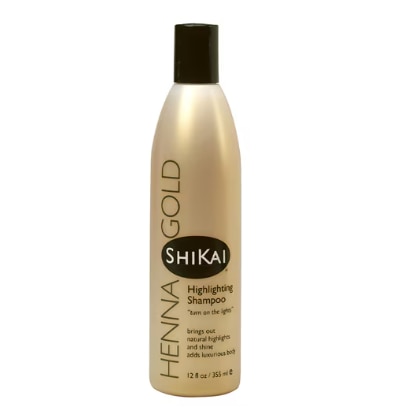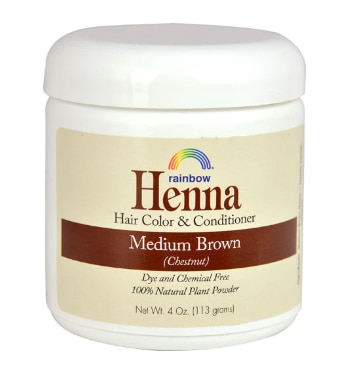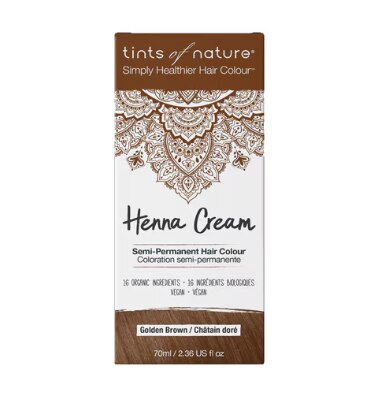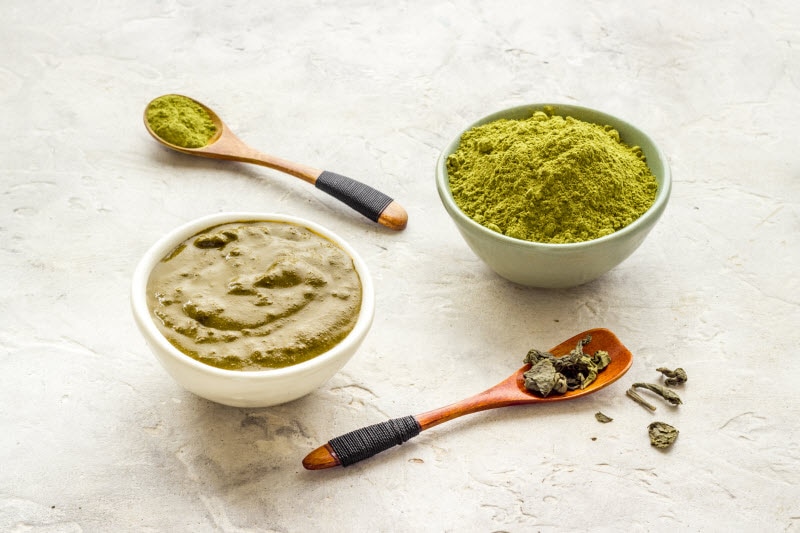Have you ever explored the art of henna? If you are new to this multi-purpose natural dye, you might be surprised to know that it has been a well-loved resource in Pakistan, India, Africa and the Middle East for over 5,000 years. Was henna really used by Cleopatra to adorn her face and body, as legend suggests? Quite possibly, as researchers believe henna originated in ancient Egypt, where it had cosmetic uses not only for queens, but also for the dead, as mummies were colorfully decorated with henna designs.
What is henna?
Henna is a natural, permanent dye made from the leaves of the primordial henna plant. It has historically been used in cultures around the world by both men and women to dye hair, beards, mustaches―and even the fur of animals for ceremonial purposes. Henna was also traditionally played a role in wedding ceremonies for centuries across Hindu, Muslim, Jewish and Christian cultures. In addition to decorating the bodies of the upper classes, henna was accessible to the poor. So, even if they could not afford jewelry, they could adorn themselves with colorful patterns on their skin.
What are the benefits of henna?
In addition to cosmetic applications, henna also became a valuable resource in hot, dry regions because of its natural cooling properties. When desert dwellers needed to reduce their elevated body temperatures, they applied a thick coat of henna paste to their palms and the soles of their feet. The resulting cooling sensation apparently remained active as long as the henna was on the skin. Henna has also been used to strengthen and condition the hair and help manage dandruff, which is a condition of the scalp that may include flaking and mild itchiness. Additionally, henna appears to support normal inflammation levels and natural wound healing, including minor skin irritations.
In the East Indian healing system of Ayurveda, henna―commonly known as mehndi―is valued for its cooling, anti-inflammatory and antimicrobial properties, and for helping to balance the doshas. For example, henna is often used to reduce Pitta imbalances, such as skin irritation, inflammation or excessive body heat.
In Ayurvedic medicine, doshas refer to three vital energies—Vata, Pitta and Kapha—that govern the physiological, mental and emotional aspects of an individual’s unique constitution. Each person is believed to possess a combination of these doshas. Keeping the doshas in balance is fundamental to a healing system that is designed to prevent illness, not just heal it.
How to use henna for self-care
As Ayurvedic wisdom suggests, henna offers a wealth of valuable self-care applications. Consider the following ideas:
Natural hair color
Henna has long been used to condition and color hair naturally without the harmful chemicals found in most commercial hair dyes. In addition to acting as a natural conditioner, henna helps to strengthen hair by sealing the cuticle; this protection helps impart lasting color and shine. It may also help regulate scalp pH as henna has a natural pH of around 5.5, which is close to the healthy pH of human skin and hair. A balanced scalp pH supports a healthy scalp microbiome and overall hair strength.
Rejuvenating hair mask
When the heat is on, and your hair seems dry or frizzy, you might try a cooling henna hair mask. Simply mix henna powder with water or full-fat, plain yogurt to a creamy consistency. Apply to your hair and allow it to permeate for a few minutes as you relax. In Ayurveda, this restorative hair treatment is believed to soothe Pitta imbalances and support healthy hair growth.
Soothing skin care
Henna is believed to have natural anti-inflammatory properties, which is one reason it has long been a valued remedy for dermal conditions. To help relieve inflamed or itchy skin and minimize irritation, redness or rashes, simply apply a light paste of henna mixed with water to the troubled areas. This is especially beneficial for Pitta types prone to skin issues.
Calming foot bath
When stress and tension sap your vitality, consider a warm, henna-infused foot soak to reduce swelling and calm Vata-related restlessness. For additional therapeutic value, add a few drops of wintergreen essential oil. You might even make this a regular habit for relaxing self-care.
Pre-manicure care
When you’re ready for a manicure, brighten and pre-condition your nails first by applying henna paste to your nails, which is believed to strengthen them and help prevent brittleness, in part because henna binds to keratin, which is the protein found in skin, hair and nails. Spike your mix with several drops of lavender-tea tree oil for its soothing, moisturizing, antiseptic, and antifungal support.
Infused hair oil
To add shine to your tresses in addition to smoothing frizz, mix up a simple henna-infused hair oil by blending jojoba oil with henna powder to a smooth consistency and apply to hair, relaxing for several minutes. Along with creating glossy locks, this remedy is traditionally thought to strengthen the roots of your hair and help guard against dandruff.
Natural dandruff remedy
To approach the dandruff problem from an Ayurvedic healing perspective, blend henna powder with fresh lemon juice to a creamy mix. You can further enrich this treatment with a few drops of essential oil of lemon. Apply it to your scalp and allow it to sit for several minutes before washing and conditioning your hair as usual. This is believed to be especially valuable for Kapha-dominant individuals with oily scalps.
The body cooler
During the hot, dry summer months, you can benefit from the cooling properties of henna with a cooling body mask or pack. Simply mix henna powder with water to make a paste. To amplify the cooling effect, mix in a few drops of refreshing peppermint essential oil. Apply it to the soles of the feet and palms, and rest, relax or meditate.
Beyond powder and cream, what henna products are available?
If you want to explore commercial henna hair color, check out Rainbow Research Henna Hair Color and Conditioner, which comes in a rainbow of shades including golden blonde, red, auburn, brown, ebony, strawberry blond, copper, dark auburn and more. Unlike mass-market hair coloring products, this 100% natural botanical hair color and conditioner is free of chemicals, preservatives, and dyes. Try it for added shine, body and to cover grey. Color will last 4-6 weeks on average, fading out gradually.
If you love the idea of henna highlights, but feel hesitant about permanent color, you might consider Shikai Henna Gold Highlighting Shampoo, and Shikai Henna Gold Highlighting conditioner. This dynamic duo was designed to restore the shimmering brilliance hidden in your hair. The secret is non-coloring neutral henna, well known for its extraordinary ability to reflect light, like cellophane, and reveal hair’s many colors and shine without the damaging effects of artificial coloring agents. It’s also safe to use on color-treated hair.
Voila! You are now well informed about henna, and the many self-care and beauty benefits it offers, as well as various ways to use it. Enjoy!
Featured Products



The post What is Henna? Discover the Modern Benefits of an Ancient Beauty Staple first appeared on The Upside by Vitacost.com.

